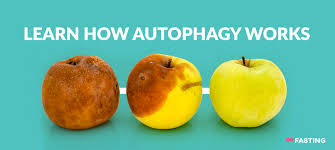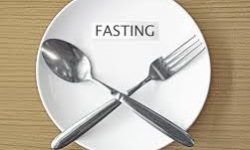Written by: Nick Agius (Bach Sport and Exercise Science)
Autophagy (“ah-TAH-fah-gee”) is the ‘self-eating’ process the body undergoes at times of stress, but why would you want your body to eat itself?
This process enables the body to clear out the damaged cells and regenerate new, healthy ones. However, you have no need to worry; autophagy is not a painful experience.
Autophagy occurs naturally when the body releases proteins to break down old, damaged cells in times of stress such as: fasting, lack of carbohydrate intake or exercise. The body collects all these damaged cells, breaks them down and uses the good parts for energy or to make new cells.

Benefits of Autophagy
Recent research has found this process to provide many cardiac, metabolic and neurological protective mechanisms in mice, such as:
- Controlling inflammation and boosting immune function
- Reducing cancer risk
- Slow the progression of aging
- Reduce the risk of developing insulin resistance
- Reduce the risk of developing neurodegenerative disorders
- Reduce the risk of developing infection
Conversely, additional research on mice has proven that a lack of autophagy can be harmful for the body. This research provides a theory that by not putting your body under this self-induced stress you are more susceptible to the cardiac, metabolic and neurological disease progression, as well as:
- Weight gain
- Increased feelings of lethargy
- Impaired brain function
- Increased cholesterol
Based on the research, it seems as though autophagy can help to make you become a more efficient machine by more rapidly removing the dead and damaged cells within the body, to make way for the healthier cells.
As we age the amount of dead and damaged cells within the body naturally increases, therefore achieving an autophagy response becomes even more essential. This process facilitates the breaking down of the old cells and prevents or delays the onset of sarcopenia (could attach link to sarcopenia blog here Brendan?)
So how can you enable this process to occur, and more importantly, how can you fit this around your busy lifestyle? Putting your body under stress to achieve autophagy is not something that needs to be done 24 hours a day, 7 days a week.
How to Induce Autophagy
Autophagy can be induced via three main methods; fasting, lack of carbohydrate intake or exercise.
Making changes to your nutritional strategy and attempting to achieve the National Physical Activity guidelines of 150-300 hours per week of moderate intensity exercise or 75-150 hours per week of vigorous intensity exercise can help you to achieve an adequate level of autophagy.
Intermittent Fasting
Fasting is the most effective way of inducing autophagy. Even skipping breakfast would challenge the body’s normal routine and cause stress responses that trigger the autophagy p62 protein.
Research has also shown that intermittent fasting has a wide range of positive benefits on health, including a reduced risk of disease and achieving a healthier body weight. However, it is also important to note that intermittent fasting is not for everyone, especially people with diabetes or other blood sugar complications, pregnant women and children.

Low Carbohydrate Intake
Many of you would have heard about the ketogenic ‘keto’ diet, or, ‘ketosis’ without knowing what this diet entails. The keto diet involves reducing your intake of carbohydrate to such a low level that it is forced to burn fats to provide energy. Keto diets make up a proportion of between 60-70% of calories of fat, 20-30% of calories of protein and approximately only 5% of calories of carbohydrates.
This popular diet allows individuals to burn body fat, whilst retaining muscle (with the help of resistance training). Some research has also shown that this diet can have similar cardiac, metabolic and neurological protective mechanisms as mentioned earlier.
Exercise
If you have trained with an Exercise Physiologist or Personal Trainer in the past, you have probably discussed the damage exercise does to your muscles and how you will most likely feel sore the day after a tough session.
During exercise, and more specifically strength training, your body develops microscopic tears in the muscle fibres as a result of the stress it experiences from the exercise. The muscle fibres then react to this stressor by regenerating and growing larger and stronger than before.
This stress is another fantastic way to achieve the autophagy response, and exercise also has the added benefit of helping you improve your overall health in almost limitless ways.
Source: YouTube Why Autophagy is one of the greatest benefits of fasting
If you are interested in receiving guidance on how to incorporate autophagy into your everyday routine, come in and speak to one of our Exercise Physiologists or Personal Trainers at Inspire Fitness for Wellbeing, or call us on 9857 3007.
